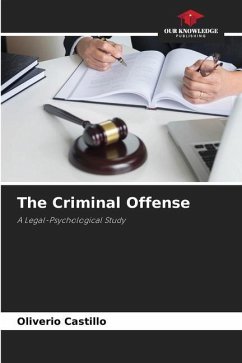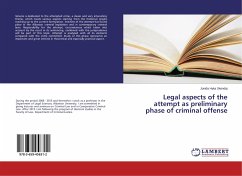In criminal law, sentencing a human being to a custodial sentence or acquitting him of it is something that only has to be arrived at through a rigorous investigation, because the verdict of the trial court determines the future of the accused, either to "kill" him socially or to save him and integrate him as a human being into his community.Faced with an act that the law indicates as a crime, the competent authority has the legal duty to initiate an investigation, which shall be exhaustive and impartial, because no person may be convicted or subjected to a security measure, except by virtue of a resolution issued by a previously established jurisdictional body, in accordance with laws issued prior to the criminal act and above all, strictly observing the fundamental rights provided for in the maximum ordinance and treaties. Specifically, the criminal guarantee establishes that, "Only that which the criminal law considers as such must be qualified as a crime, that is to say, no action or omission that is not foreseen as a crime or misdemeanor by law will be punished".








